by Jasmin Ramsey
*This post has been updated to include further confirmation that Russia’s Foreign Minister Sergey Lavrov is headed to Geneva.
Geneva — If you’re wondering why there’s no juicy details coming out of Geneva, where Round III of negotiations with Iran over its nuclear program have run into their third day, it’s not because us journalists have been sitting around sipping $9+ espressos in a fancy hotel’s lobby all day.
“I’m always optimistic…it’s hard to give characters, it all depends on so many factors,” Russian Deputy Foreign Minister Sergei Ryabkov told a swarm of hungry reporters following him outside the InterContinental today just before noon.
Mr. Ryabkov’s brief comment is an accurate depiction of what pretty much every delegate that has ventured to speak to us annoying members of the press has been saying. And as for the million dollar — or in the case of the Iranians, billion dollar — question on everyone’s mind, Mr. Ryabkov said it’s “possible” that other Foreign Ministers of the 6-world powers involved in the talks could make there way to Geneva this time, but to date, no official has confirmed that either way.
(I just found out that Russian Foreign Minister Sergey Lavrov is indeed headed to Geneva — but we don’t know when he’ll be here, whether he’s coming for the talks with Iran, the upcoming talks on Syria also to be held here next week, or both.)
Indeed, other than a US background briefing on the first night of the talks, some statements made to the press by the EU delegations — essentially boiling down to: there have been “substantial and detailed negotiations on Iran nuclear programme, conducted in good atmosphere” (that one provided by Michael Mann, Spokesperson for EU High Representative Catherine Ashton)” –, some characteristically vocal French comments early on, and more positive-sounds coming from the Iranians today, that’s all we’ve really got to report.
But that’s far from a bad sign as far as the diplomatic process goes, according to an expert here.
“It’s definitely a good thing for the negotiations to be conducted in private,” said Ali Vaez, the International Crisis Group’s senior analyst on Iran.
“The drama of last time put too much stress on the negotiation process and on the negotiators…this way they have a much better chance of hammering out the details without being pressed by the media to come up with some sort of resolution one way or another,” he said.
“This takes time, it’s hard and the chances are better for a resolution if the talks are conducted behind closed doors and away from the spotlight,” said Mr. Vaez.
Food for thought, as is this and this. In the mean time, keep checking this blog and my Twitter feed for more up-to-date details (@jasminramsey), which, according only to my hunch, I’ll have for you later today.
Photo: Reporters swarming after members of one of the P5+1 delegations leaving the InterContinental Hotel in Geneva, Switzerland, on Nov. 22. Credit: Jasmin Ramsey

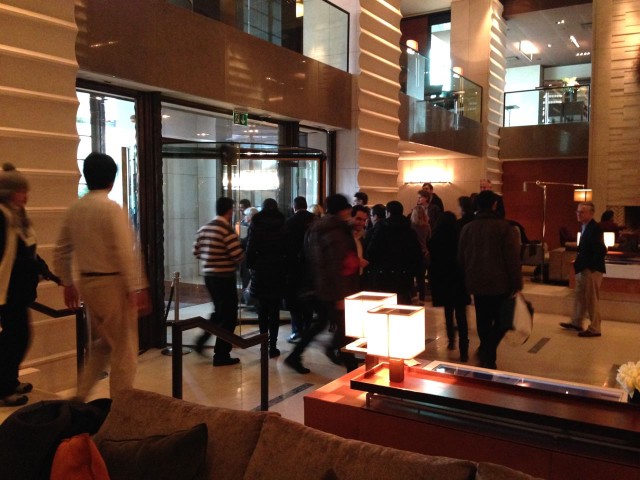
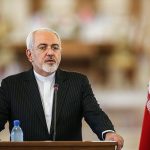
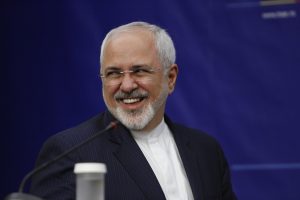
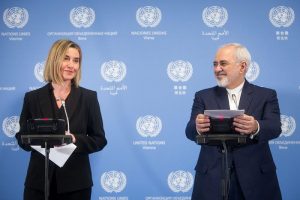
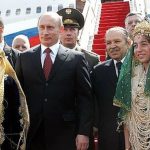
Ah, the suspense of it all. As was said at the beginning, it takes time to reach a satisfactory solution that is good for all. Well, almost all. Until later, we await.
Fine piece.
Because the hard liners sense the US is desperate for a deal, there is no talk of human rights considerations. This is a grave mistake. You just have to look at similar Cold War deals with the Soviets where we always extracted human rights considerations. The UN General Assembly must pass a resolution reiterating its demands that Iran halt violations against its citizenry.